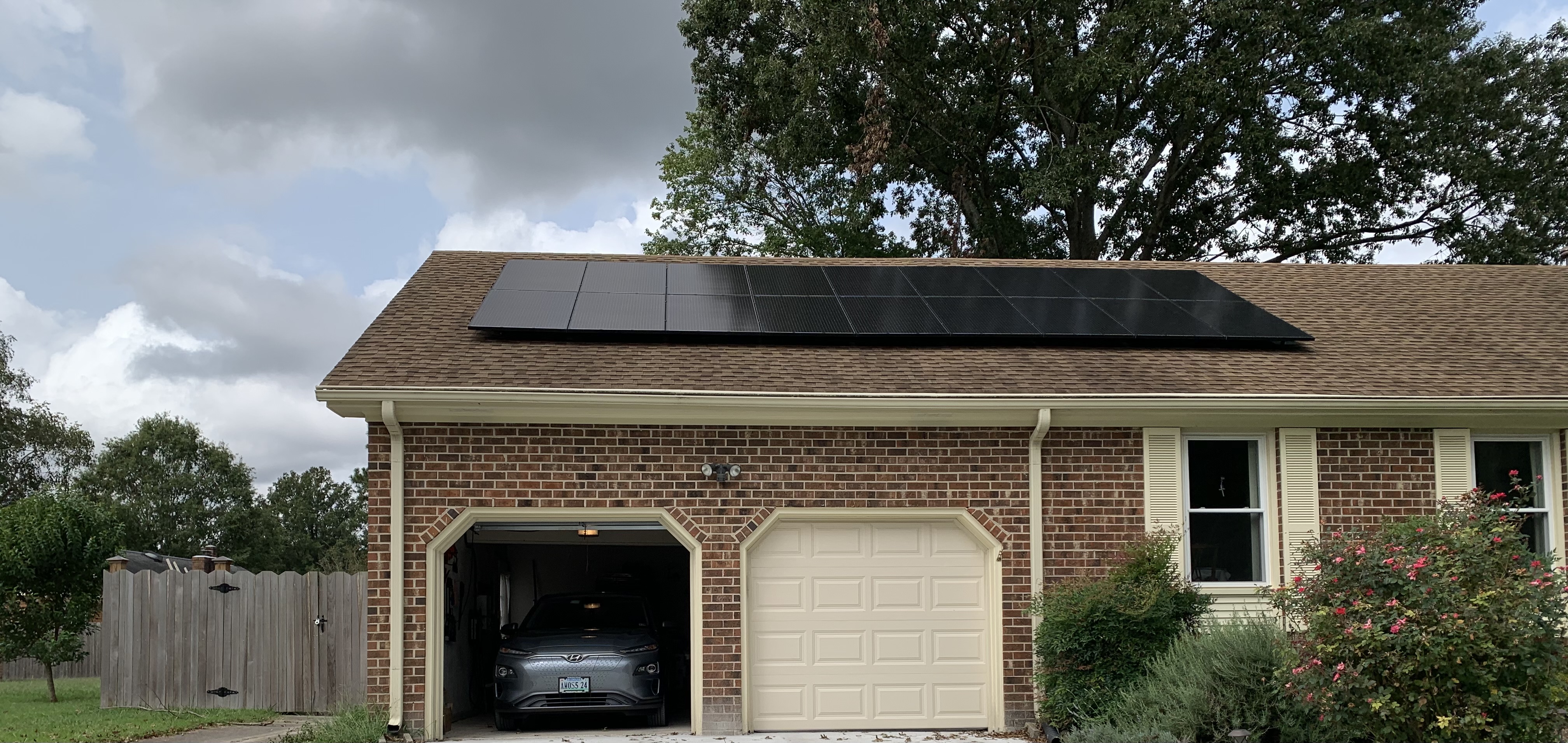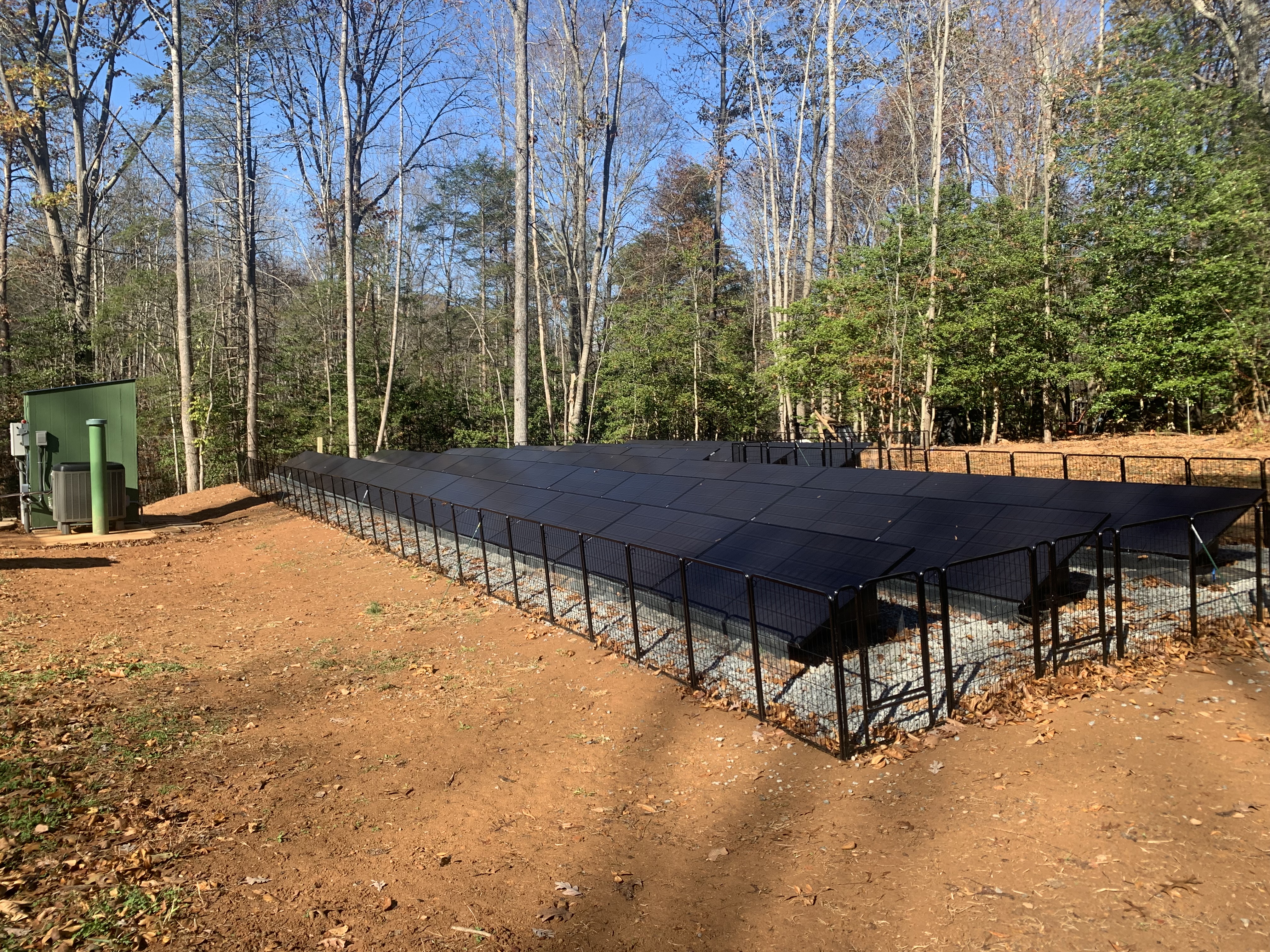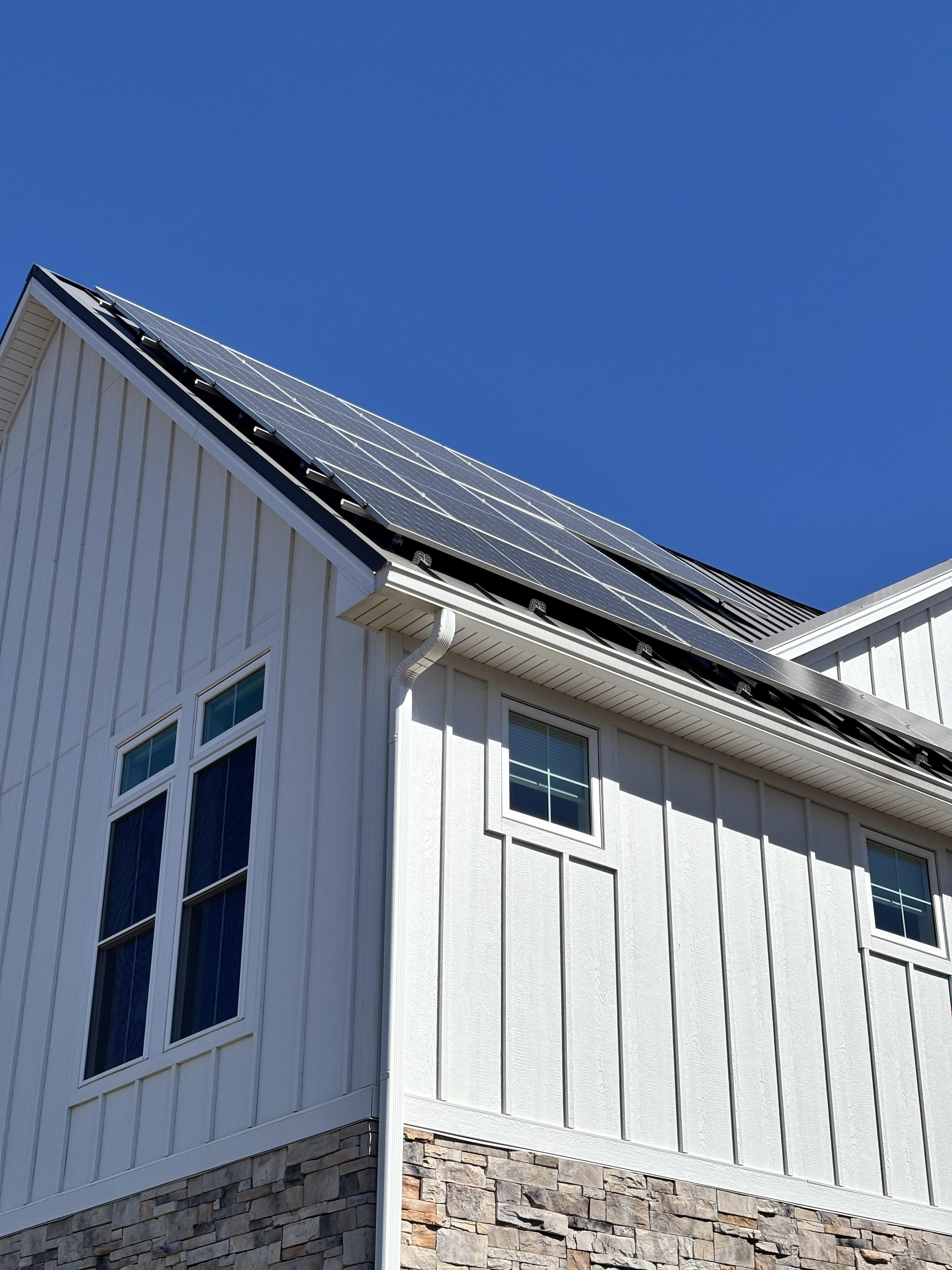This is part of our Cardinal Way project on promoting civil discussions.
We recently ran an opinion piece by David Wiley of Roanoke, in which he touted the advantages of the solar panels on his home, which, besides lowering his electric bill, also allows him to charge his electric car.
That prompted us to ask readers for their experience with either solar panels or electric vehicles. Here’s what some had to say about solar. We’ll have their responses on electric vehicles in a future edition.
Her solar production exceeds her energy use overall
Joy Loving, Grottoes:
Our 7.5Kw ground-mount solar system went “live” Oct 2, 2012; we’re in our 13th year. We are Dominion net-metered customers. We received the federal $7,500 tax credit. Our ability to site the panels due south has meant that we maximize the sun’s rays. We oversized the system anticipating that we would stop heating with wood, buy a new HVAC heat pump system, and also buy an electric vehicle. (All of this happened in late 2017.) Virginia law doesn’t allow us to receive a 1-1 Kilowatt Hour (KwH) credit for every excess KwH our panels produce in each 12-month period; rather, we receive credit only for every Kwh over those Dominion provides us. [Disclosure: Dominion is one of our donors but donors have no say in news decisions; see our policy.]
During January – March our panels don’t produce all the electricity we use; so we have larger electric bills in those months. Our panels have continued to produce well, although we’ve seen some reduction in annual production in the last couple of years. Some of that is due, we think, to fewer good solar days, especially during the cold winter months and some to declining efficiency of the panels. For 8 months of our 12-month accounting period, nonetheless, our electric bill is less than $10 (March – December). Our monthly usage increased once we acquired the EV but overall, on an annual basis, our solar production still exceeds our usage. Although we received a 25-year warranty for the system, the solar company that installed it is now out of business. Thankfully, we haven’t had any outages or other problems with the panels or the inverter. If we should have them, however, we’ll need to work with another solar company to try to “exercise” our warranty rights. Though our system is too old to have a robust recording system, we believe that we are past our break-even time, given our investment. We’re glad we invested in solar and have appreciated our significant reductions in electric bills over the years.
* * *
Solar reduced his electric bill to less than $9 per month

Robert Egbert, Roanoke:
We had 22 panels put up in April of 2019 and 4 more two years later. We now pay $8.92 per month year round. Our house is all electric & uses a heat pump for heating and cooling but no EV. We are grid-tied with net metering. We expect that our panels will pay for themselves by 2029 (sooner if APCO rates keep going up). $107.04 per year for all our residential energy needs.
* * *
With solar, his power bill is $8 per month
Stephen Ambruzs, Roanoke:
Best decision we ever made. Instead of paying AEP $250+ each month I repay myself for the panels. Now my bill is $8 each month.
Solar power, or far-field nuclear as I like to call it, is unlimited free energy that everyone should be taking advantage of. Every rooftop should be covered in solar panels. Leave the fields and farmland as open spaces.
* * *
With solar, his power bill is $9 per month
Joseph Bryson, Roanoke:
They’ve worked just as expected. They’re great. Installed by SolShine Energy, an exceptional local company. My annual generation has exceeded my consumption so my electric bill for my all-electric house has been $9/month for the two years I’ve had the panels.
* * *
He’s giving away solar power during the day

Paul Sweet, Bedford:
I installed a hot water solar heating system on a house I built in 1987. It heated the house well, but all the corners I cut to get costs down created other problems. It was a good learning experience. I had photovoltaic panels installed on my carport roof last year. The system was sized to provide 50% of my electric needs. One thing I didn’t count on was that they would generate power during the day, but a lot of my electric load (cooking, dishwasher, laundry, hot water) was in the evening. The Bedford Electric Dept. doesn’t allow net metering, so I am giving away excess power to the department during the day then paying to buy it back at night.
* * *
Solar produces 100% of her electricity

Susan Potter, Virginia Beach:
We got our rooftop solar panels through the 2019 Hampton Roads Solar Co-op, sponsored by NON-PROFIT Solar United Neighbors. The price through this group buying arrangement was so inexpensive that we were able to pay cash, so we have no monthly payment on the solar panels. We got a 30% tax CREDIT (not a deduction, a CREDIT) on our federal taxes. Dominion currently charges $9 or less per month, essentially a connection charge. With net metering, during the day our excess solar production helps to power the grid. At night, when the sun does not shine and our solar power system does not produce electricity, we get electricity from the grid. Both Dominion and our neighbors benefit from this arrangement, because our rooftop solar power helps to stabilize the grid. We added insulation and other energy saving measures, so our solar power system now produces 100% of our electricity use, even after we also added one electric vehicle. (No, NOT a Tesla!)
Solar will soon put him at net zero energy from the grid

James Francis Reed, Prince William County:
I have lived in a passive solar underground home in Prince William County since 2007. November 28, 2024 my SolarEdge/Powerfield ground mount 19.98 kW (54 panels) solar system with 10 kWh battery backup was finally operational. It took a year to get it permitted and operational after 7 companies declined to work with me over a three year period due to Prince William County permitting delays. The system has cut my power use in half for December, January, and February. Battery backup kicked in twice with no issues following storm related grid outages. The cost was $74k which I saved for over five years so I could pay in cash. $15k of this was an overrun associated with unique problems bringing power into the underground house and leveling for the ballasted ground mount. I expect to be net zero for power from the grid for the year. I try to peak shave and maximize self consumption. This means the battery is used each evening down to 30% and then recharges to 100% between 0930-1130 on sunny days. Daily power costs ranged from $0.64 yesterday to $18.45 on snowy day, below freezing, requiring heat to keep our aging bodies comfortably warm.
I highly recommend both but recognize upfront costs are a lot, I was fortunate enough to save for both before I retired in Oct 2024. I am not rich and used most of my savings to install the solar system. A case could be made that my system will not pay back before we pass but it is as much principal as cost savings for me. Coupling EV with grid and home solar systems using bi-directional charger will be a game changer and on a large scale will benefit all our co-op electricity customers by lowering peak power cost. Also we need more solar on data center, stores, industrial warehouses, and most of all parking lots.
* * *
For most of year, she can power her house by solar

Mary McCarthy, Lynchburg:
My experience has been great. Throughout most of the year I am able to generate enough power to run my home. The panels are an investment for sure. I do feel better using green energy when and where I can.



